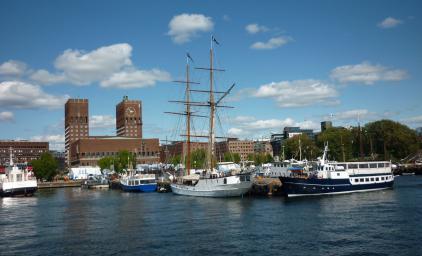We regret to inform you that due to recent developments with respect to the coronavirus (Covid-19) and in order to ensure the health and safety of all, the OECD, Nordic Innovation and the City of Oslo have decided to postpone the upcoming 2nd OECD Roundtable on Circular Economy in Cities and Regions, which was to be held on 31 March 2020 in Oslo, Norway.
In light of the significance of the Roundtable, we have been exploring the possibility of remote participation to advance our multi-stakeholder dialogue. You are herein kindly invited to keep your agendas blocked and register for two dedicated webinars:
31 March, 11am-13pm CET:
Spotlight on the circular economy in cities and regions
[register here].
Program
- Launch of the three OECD reports on Circular Economy in Groningen (Netherlands), Valladolid (Spain), and Umea (Sweden)
- Circular Economy initiatives in Granada (Spain), Glasgow (Scotland) and Ireland
- Highlights from the experiences of Nordic countries
- Q&A and ways forward
31 March, 14h30-16h30 CET:
What’s new and how to measure circularity at local level?
[register here].
Program
- Key Findings from OECD Survey on the Circular Economy in Cities and Regions
- The OECD framework to measure circularity at the local level
- Q&A and ways forward
In 2020 Nordic Innovation will partner up the OECD on a Roundtable on the Circular Economy in Cities and Regions.
Read more about the previous round tables here.
Read more about the event on OECD's website.
Cities use almost two-thirds of global energy and produce up to 80% of greenhouse gas emissions and 50% of global waste. The circular economy provides a policy response to cope with these challenges and is a driver for economic growth, jobs and environmental quality.
Yet, there has been little policy research and attention on cities and regions within the circular economy discourse, as compared to national governments. Why? And what is the potential of cities and regions to help make the transition from a linear to a circular economy happen?
Background
The OECD Programme on the Economics and Governance of the Circular Economy in Cities and Regions supports cities and regions in their transition towards a circular economy through multi-level dialogues to identify challenges and opportunities; peer-to-peer learning and key indicators for decision making and evaluation of the circular economy strategies.
The Roundtable will bring together key circular economy stakeholders from cities, regions, national government, business, academia and international organisations to share knowledge, experiences and best practices.
The event is a part of our Nordic Sustainable Business Transformation program.
